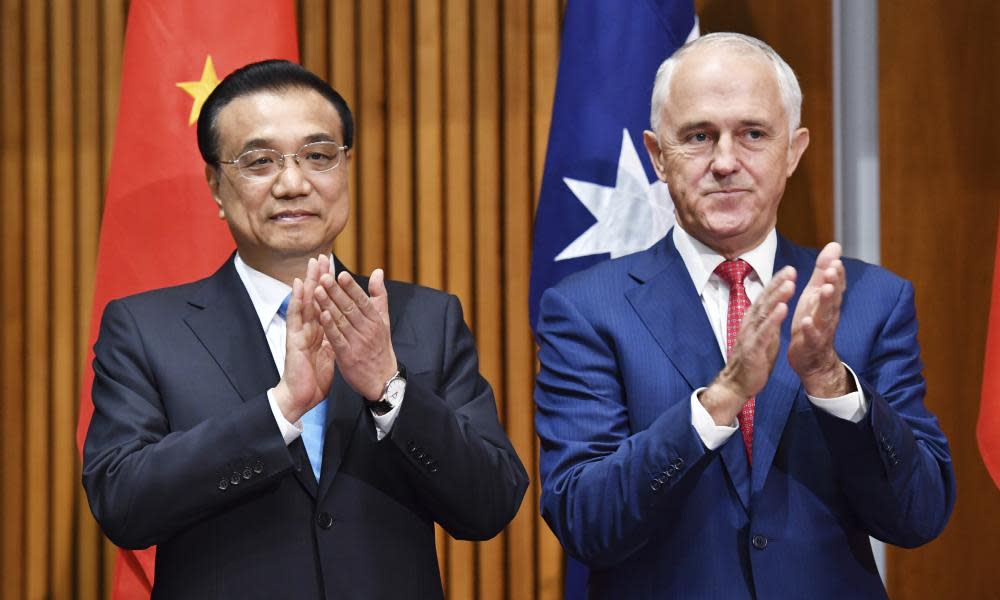Australian chilled beef exporters to get better access to China

Australian chilled beef exporters have gained better access to the lucrative Chinese market as part of undertakings agreed during a visit to Canberra by the Chinese premier, Li Keqiang.
The beef deal, which expands chilled meat market access from eleven exporters to all eligible Australian exporters, was one of a number of bilateral measures agreed between Li and the Australian prime minister, Malcolm Turnbull, after talks between the two leaders in Parliament House on Thursday.
After using a lunch address on Thursday to publicly advise Australia not to take sides in a new round of cold war hostilities, the visiting Chinese premier used Friday’s press conference to declare that China was not militarising islands in the South China Sea.
Australia’s foreign minister, Julie Bishop, has noted recently that China’s provocative behaviour in the South China Sea was one of the challenging manifestations of emerging geopolitical competition in the region, and said the region was anxious in the absence of a clear signal from the Trump administration.
But the Chinese premier suggested the build-up in the region was about maintaining freedom of navigation and freedom of overflight, not about a military expansion. “China never has any intention to engage in militarisation in the South China Sea,” the premier said in Canberra on Friday.
“China’s facilities on Chinese islands and reefs are primarily for civilian purposes and even if there is a certain amount of defence equipment or facilities, it is more maintaining the freedom of navigation and overflight in the South China Sea, because without such freedom or without stability in South China Sea, the Chinese side would be among the first to bear the brunt of it.”
While Bishop recently nominated the United States as the pre-eminent global strategic power in Asia, and the “indispensable strategic power in the Indo-Pacific”, and suggested China would not reach its full potential in the absence of a democratic system, the prime minister told reporters Australia was not in the business of choosing sides between Beijing and Washington.
“The bilateral relationship between China and the United States is the single most important one for the prosperity and security and stability of the world, and the fact that we have very strong relationships, but different relationships — different in context and in terms of history — with both the United States and China, that is a great strength,” the prime minister said on Friday.
“We have a staunch, strong ally in Washington, a good friend in Washington, and we have a very good friend in Beijing.”
“The idea that Australia has to choose between China and the United States is not correct.”
Turnbull did not echo the foreign minister’s explicit criticism of the lack of liberal democratic values in China during Li’s visit to the Australian parliament, but he did reference Australia’s democratic tradition at Friday’s joint press conference.
The Australian prime minister said mutual respect between allies was “the foundation of peace and stability in the world” but he noted Australia was “proud of the extraordinary democratic parliamentary tradition of our nation.”

 Yahoo News
Yahoo News 
